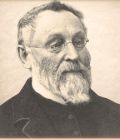Sleepy by day, but wakeful at night (Nux vomica, Staphysagria) (B.).
AGGRAVATION:
From bad news; from depressing emotions; from masturbation; from sexual excesses; from draft or wind; from snowy air; from mental affections; from over-study; from loss of vital fluids; from talking; from noise; from music; and from acids.
AMELIORATION:
After short sleep; from warmth; from pressure; and by motion.
RELATIONSHIP:
Compare: Arnica, Baptisia, China, Ferrum, Graphites, Hepar, Ignatia, Kali-P., Lachesis, Lycopodium, Mur-Ac., nat-M., Nit-Sp-D., Nux vomica, Opium, Phosphorus, Pic-Ac., Pulsatilla, Rhus toxicodendron, Sepia, Silicea, Sulphur, Thuja Veratrum and Zincum met.
Acid phosphoricum. acts well before or after China, in colliquative sweats, diarrhoea, debility, etc, and after Nux-V in fainting after a meal and seminal emissions.
ANTIDOTES; Camph., Coffea

